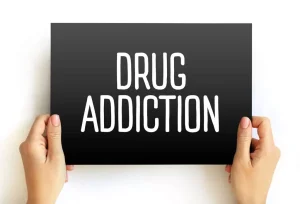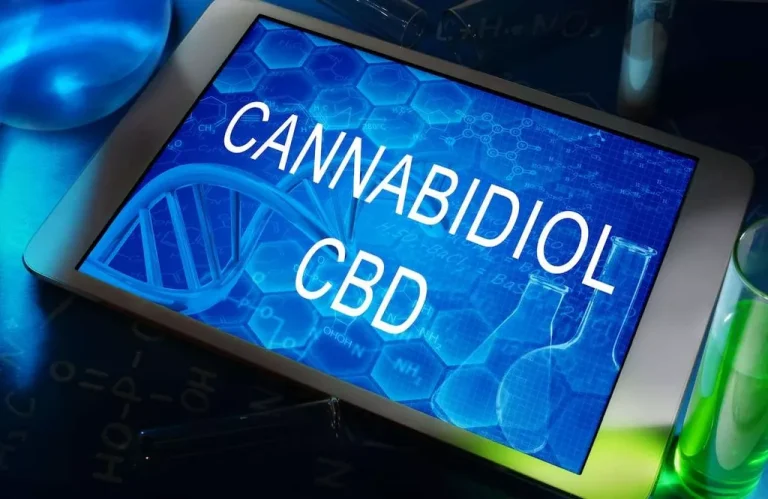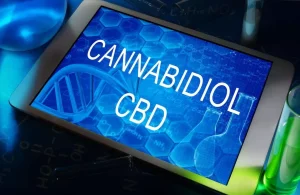
Additionally, alcohol does not cause changes in electroencephalographic (EEG) findings when consumed in small amounts. Moderate alcohol intake does not usually cause seizures in otherwise healthy individuals. However, research has found that the effects of long-term alcohol use on the human brain may increase the risk of developing seizure disorders.
Key Prevention Strategies

Individuals may experience anxiety, depression, and social isolation due to the Substance abuse unpredictability of seizures. This makes the exploration of comprehensive treatment options, including Ayurvedic practices, particularly relevant. Our mission is to empower individuals with science-backed supplements that complement a holistic approach to health. As we explore Ayurvedic treatments for epilepsy, we’ll also touch on how incorporating high-quality, natural supplements can further enhance wellness and support brain health. According to the CDC, heavy drinking is defined as 15 or more drinks per week for men and 8 drinks or more per week for women (2). If you’re wondering how to stop drinking alcohol every night and you tend to drink at home, don’t keep alcohol in your house.

What Are the Different Types of Alcohol Seizures?
Alcohol use with your epilepsy medicines might provoke seizures if you misuse other substances, like marijuana or illicit drugs. If you or someone around you experiences a seizure, it alcohol withdrawal seizure is critical to seek medical attention, especially if it lasts longer than five minutes, occurs repeatedly or involves an injury. We feel compelled to drink in social settings to avoid being labeled as weird, aloof, or “not good company.” Some of us may use alcohol to cope with underlying emotional or psychological issues, such as anxiety, depression, or trauma. We use alcohol as a self-medication to temporarily alleviate our distressing feelings or escape reality. Alcohol can temporarily escape personal problems, stress, or difficult life circumstances.
- Status epilepticus is when people experience seizures for an extended period or in rapid succession without full recovery between episodes.
- However, it’s crucial to consult with an experienced Ayurvedic practitioner to tailor the treatment to individual needs.
- Healthcare professionals may develop a personalized withdrawal management plan involving medications, such as benzodiazepines or anticonvulsants, to manage withdrawal symptoms and prevent further seizures.
- Alcohol acts by stimulating receptors in your brain that cause brain activity to be suppressed.
- An alcohol withdrawal seizure is frequently a generalized tonic-clonic seizure.
Long-Term Comprehensive Care
- Whether you are struggling with addiction, mental health or both, our expert team is here to guide you every step of the way.
- It can also occur when an alcoholic suddenly stops drinking and experiences alcohol withdrawal.
- Some experts link excessive alcohol consumption to the development of epilepsy.
- In other words, there may be a link between chronic alcohol use (alcoholism) and epilepsy risk.
- If you have withdrawal symptoms from drinking, then you have consumed enough alcohol to damage other organs.
- Some individuals may not fully comprehend the long-term health consequences of excessive alcohol use.
- If breathing is severely compromised or prolonged, it can lead to hypoxia (lack of oxygen) and respiratory failure, which can be fatal.
Effective prevention strategies involve a combination of responsible drinking habits, medical interventions, and support systems to ensure long-term health and minimize the risk of seizures. With the right combination of medical intervention, support systems, and lifestyle modifications, individuals can manage their condition effectively, prevent further seizures, and work towards a healthier, more stable future. The most common scenarios involve alcohol withdrawal or, in some instances, acute overconsumption (binge drinking). It’s important to note that while not everyone who drinks heavily will experience a seizure, the risk does increase with certain patterns of use, existing medical conditions and the body’s individual response. Alcohol seizures can be serious and potentially fatal, but not everyone who experiences alcohol seizures will die as a result. Prompt medical attention and appropriate management of alcohol withdrawal seizures are crucial in mitigating the risks of experiencing alcohol-induced seizures.
- No group differences on alcohol withdrawal, craving, mood, irritability, anxiety, or sleep were observed.
- Hypoglycemia causes seizures and is more likely to occur in those who use medicine to keep their blood sugar levels in a normal range.
- With long-term heavy drinking, alcoholic patients develop a ‘protracted abstinence syndrome’ in which they need at least some alcohol to attempt to feel a ‘normal’ mood, reward, and stress response 5.
Alcohol-induced seizures are a dangerous result of excessive alcohol consumption and withdrawal, requiring immediate treatment. Effective management focuses on both the seizures themselves and addressing underlying alcohol use disorder (AUD). A combination of medications, behavioral therapies, and lifestyle interventions are often used to ensure long-term recovery and seizure prevention.
Kindling refers to the phenomenon where repeated seizures can sensitize the brain, making it more susceptible to future seizures. This kindling effect can be particularly relevant in individuals with a history of alcohol withdrawal seizures. Alcohol can cause seizures, mainly in individuals susceptible to alcohol withdrawal seizures or alcohol withdrawal syndrome. Alcohol withdrawal seizures may ensue when you abruptly stop or significantly reduce your alcohol intake after drinking for a long time.
What is considered a heavy drinker?
When this effect occurs deeply or over a long period of time, brain activity can rebound during alcohol withdrawal, exceeding normal levels and creating the risk of a seizure. Someone with an alcohol withdrawal seizure may experience convulsions and lose consciousness. People with epilepsy experience seizures (convulsions) due to excessive electrical activity in their brain. Individuals with this medical condition can drink alcohol in small amounts without experiencing an increase in seizure activity. Small amounts of alcohol also do not interfere with anti-seizure medications.

People who chronically consume large amounts of alcohol seem to be more likely to have epilepsy than people who don’t. Alcohol and seizures can be a dangerous combination, leading to potential risks and complications. If you or someone you know experiences seizures related to alcohol consumption, seeking medical attention is crucial. If seizures related to alcohol consumption occur repeatedly, it is crucial to consult a doctor. Recurrent seizures can indicate a more serious condition that requires medical intervention. Additionally, chronic alcohol abuse itself can harm the brain, resulting in cognitive deficits and other neurological problems.

Lifestyle Quizzes
This initial assessment helps determine the likelihood of alcohol-induced seizures and guides further testing to confirm the diagnosis. By embracing the wisdom of Ayurveda alongside modern practices, we can navigate the complexities of epilepsy with confidence and care. Together, let’s explore a path toward holistic wellness and empowered living. Yoga offers a holistic approach, combining physical postures, breathing techniques, and meditation.
Alcohol Seizure Prevention
In severe cases, alcohol-induced seizures can be part of delirium tremens, a life-threatening withdrawal syndrome that may develop 48 to 96 hours after the last drink. AA and other support groups can be helpful in quitting drinking, but you can find assistance in other ways. Therapy is effective in helping people quit, as is medication prescribed by a healthcare provider. If drinking alcohol worsens your seizures, you should avoid alcohol completely.
